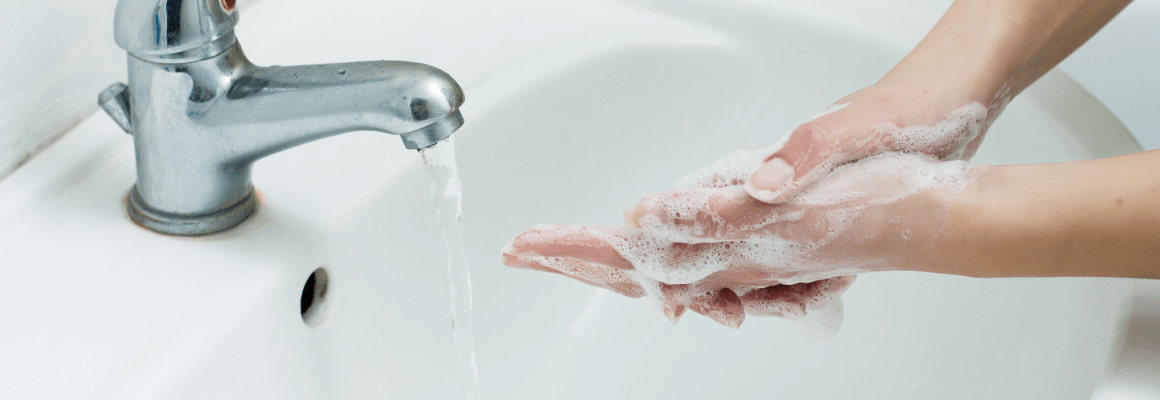Getting a good night’s sleep is essential for anyone’s health and mental well-being. Unfortunately, when you suffer from eczema, it can be hard to get the recommended 7-8 hours of rest. Eczema tends to itch more at night, making it uncomfortable and disruptive to get some much-needed shut-eye.
The long-term negative consequences of eczema and insomnia can be catastrophic, resulting in significant psychosocial and economic burdens. Because of this, learning to manage sleeping problems is essential.
Read on to discover some tips on improving your sleep for a happier and healthier life.
Please keep in mind that although these what we discuss in this post can relieve eczema, we are in no way medical professionals. If you’re experiencing severe eczema symptoms like an infection, it is best to seek medical advice immediately.
Eczema and Sleep Problems
If you suffer from eczema, you probably know first-hand the sleep problems that accompany this itchy skin condition.
You’re not alone. In addition to reporting higher rates of fatigue and daytime sleepiness, up to 80% of children and 87% of adults with eczema experience insomnia.
In adults, the disturbed sleeping pattern associated with eczema is linked to a greater number of sick days and doctor visits, making fatigue-related productivity loss an estimated $1,967USD per employee annually. It’s also a contributing factor to psychological disorders and workplace accidents.
Lack of sleep in children can affect their cognitive development, leading to learning disabilities, impulsivity, and daytime behavioral problems. Using appropriate eczema cream for babies can help manage symptoms and improve sleep quality. In addition to higher levels of anxiety and depression, pediatric insomnia is also associated with autism and attention-deficit/hyperactivity disorder.
Why Does Eczema Get Worse at Night?
There are a few reasons why eczema tends to itch at night. To start with, it’s common for people to unknowingly scratch in their sleep. This can aggravate itchiness and irritation.
Another may be related to temperature. Since body temperature and eczema are closely related, many people wake up in the middle of the night feeling overheated. This can cause eczema-related itching to surge.
Scientifically speaking, the itch-scratch cycle and insomnia can be exacerbated by decreased melatonin secretion and decreased sebum production which worsens skin dryness.
Tips for Sleeping Better with Eczema
Learning to manage eczema and insomnia is one of the key pillars of improving both the skin condition and quality of life. Here are our suggestions for dealing with eczema and sleep problems:
Moisturize Before Bed
While you may have moisturized throughout the day, the effects of your ointment may have worn out by bedtime.
To improve sleep quality, be sure to apply a moisturizer before bed. We recommend an oil-based balm, such as our beef tallow cream or our Nourish + Hydrate Manuka Balm made with just six ingredients and 100% natural.
The buttery texture is perfect for soothing itchy, irritated skin. The best part? If you're not completely satisfied, there is a 100% satisfaction guaranteed or your money back within 30 days of purchase.
Wet Wrap Therapy
Boost the effectiveness of your moisturizer through wet wrap therapy. This involves soaking the skin in lukewarm water, sealing with a moisturizer, and applying damp clothing for a minimum of two hours.
Studies of wet wrap therapy show an 71% average reduction of symptoms. For children and adults, try these eczema bandages.
Prevent Scratching
To reduce the risk of scratching eczema and exacerbating symptoms, keep your nails trimmed and neat. It’s also a good idea to protect your skin with gloves or mittens.
Check out some of our favourites:
Remedywear™ Fingerless Gloves for Adults
Remedywear™ Fingerless Gloves for Kids
Adjust Temperature
As mentioned earlier, body temperature and eczema are related.
A decrease in skin temperature can lead to decreased inflammation and pruritus, which in turn, can improve sleep. To help regulate your temperature, adjust your thermostat before bed.
While there’s no universal temperature that works for everyone, a good ballpark is anywhere from 3 to 5 degrees. You can also try cooling pillows and mattress covers, or use fewer blankets.
Wear Comfortable Sleepwear
Comfortable sleepwear is important for reducing the itch-scratch cycle and protecting the skin from unintentional scratching during the night. The best eczema sleepwear is made from gentle fabrics like organic cotton, TENCEL, and bamboo.
We love Remedywear™ because you can rest assured that no chemical dyes or irritating materials are used.
Here are a few of our recommendations:
Remedywear Long Shirt for Adults
One-Piece Footed Pajama for Kids
ScratchSleeves Baby Eczema Pajamas
Create a Peaceful Sleeping Environment
Give your body the best chance at getting a good night’s rest by creating an appropriate sleeping space. Make sure to turn off all computer and phone screens before bed as the increased exposure to higher wavelength blue light is associated with decreased non-REM Sleep. In other words, the light from electronics can trick your brain into thinking it's not bedtime!
You can also try some relaxation techniques about an hour or so before sleep time. We recommend meditating, taking a bath, listening to soothing music, or reading a book.
Bonus: these activities also contribute to reducing stress levels which is linked to reducing eczema flare-ups!
Use Eczema-Friendly Bedding
Choosing the right bedding is essential for a restful night with eczema. Organic, chemical-free fabrics help prevent irritation, while breathable, hypoallergenic materials like cotton wick away moisture and regulate temperature to reduce flare-ups. Naturally dyed, toxin-free sheets and pillowcases provide a gentle, soothing sleep environment, supporting skin recovery overnight.
Develop a Sleeping Pattern
Creating a sleeping pattern can help your body sleep more soundly.
Stick to a regular bedtime in order to train your body to stay asleep and aim to wake up at the same time each morning. You should also avoid eating heavy meals, drinking caffeine, or smoking before going to bed.
Try Melatonin
If all else fails, melatonin can help those with eczema get to sleep more quickly. Melatonin, a major neurohormone, helps regulate the circadian rhythm, increases sleepiness, lowers core body temperature, and decreases cutaneous inflammatory markers - all beneficial to those suffering from eczema.
References:
https://www.healthline.com/health/atopic-dermatitis/sleeping-severe-eczema
http://www.sleepreviewmag.com/2015/01/eczema-sufferers-higher-insomnia-rates/



